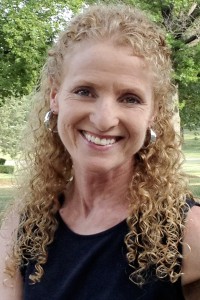Traumatic Brain injuries (TBI), which can range from a mild concussion to permanent brain damage or even death, frequently result in substantial long-term social and cognitive effects. Victims are often left to deal with a completely new normal full of serious changes and challenges. Other times, the brain responds to trauma in spectacular ways, resulting in talents the injured person never before expressed.
Imagine a 10-year-old boy is seriously injured when he is hit in the head with a baseball and knocked unconscious. Rather than experiencing significant difficulty with speech or memory, he is suddenly able to compose brilliant scores on the piano. This is called acquired savant syndrome, often referred to as “prodigious savant” or “accidental genius.”

What is Acquired Savant Syndrome?
Acquired savant syndrome is the presentation of (often extraordinary) scholarly skills that can emerge after a non-disabled individual suffers a traumatic brain injury or illness.
But even with such newfound skills, TBIs can prove utterly devastating. While few people may acquire new, wonderful abilities, many of those who suffer such a brain injury are faced with serious, often debilitating, challenges in the aftermath.
If you or a loved one has suffered a TBI due to someone else’s negligence, you shouldn’t be left to deal with the consequences on your own. To speak with a qualified traumatic brain injury lawyer, please contact the Brain Injury Law Center at (757) 244-7000. We can help you to fight for the compensation that you deserve to ease your burdens and help you to successfully move forward with your life.
Understanding Acquired Savant Syndrome
The astounding abilities of acquired savant syndrome often materialize following a traumatic injury to the left hemisphere of the brain, commonly a left anterior temporal lobe injury. In every case of savant syndrome, the right hemisphere of the brain compensates for the injured left hemisphere. In other words, acquired savant syndrome can present someone with new abilities after a TBI, where none of these abilities existed prior.
It is widely believed that these newly surfaced skills are not newly created, but newly “released,” compensatory abilities. This has left many wondering if we are all capable of such miraculous skills.
Symptoms and Manifestations
There are so many areas in which human beings may excel. That’s why it’s fascinating to know that most individuals who experience acquired savant syndrome can usually fit their newfound skills into one of just five categories:
- Music (usually piano and performance);
- Calendar calculating;
- Mathematics (such as lightning calculations or easy computation of prime numbers);
- Art (usually painting, sculpting, or drawing); and
- Spatial or mechanical skills (such as accurately measuring distances without any tools).
Less common skills that have been reported include:
- Perfect appreciation of time without a clock;
- Incredible knowledge in fields such as statistics or neurophysiology;
- Language (polyglot) facility; and
- Strange sensory discrimination in touch, vision, or smell.
How Many People Have Acquired Savant Syndrome?
Savant skills are found in as many as one in 10 individuals with an autistic disorder, while less than 1% of non-autistic individuals have acquired savant syndrome. This includes individuals with a developmental or intellectual disability, or brain injury. Most of those with this syndrome are male, with relatively few reports of female savants. (This may be due to the fact that more boys are affected with autism than girls.)
Acquired Savant Syndrome Examples
Sometimes the damage is due to illness, such as dementia. Other times the trauma is external.
Orlando Serrell is one example of genius-level skills unearthed by traumatic brain injury. At 10 years old, Serrell was hit on the head by a baseball while playing with friends. Serrell suffered intense headaches for some time afterward, but once they cleared, calendar calculation ability emerged. Suddenly Serrell could recall events in his life, down to that day’s weather, with incredible accuracy.
Futon salesman, Jason Padgett, cared little about anything besides partying and women prior to being attacked and robbed by two men outside of a karaoke bar. As a result of the beating, Padgett began developing a variety of negative consequences, such as OCD. However, he also became fascinated by the mathematical idea of fractals, later drawing in-depth patterns and geometric shapes. He eventually developed synaesthesia, a cross-wiring of the brain that mixes up one’s senses, and became a mathematical savant.
Another example of acquired savant syndrome occurred with Derek Amato, who gained remarkable skills after he was knocked senseless on the shallow cement bottom of a Jacuzzi. The TBI left him with 35% hearing loss in one ear, memory loss, and headaches. However, four days later, another symptom emerged: an intuitive, complex understanding of how to arrange and play melodies, harmonies, and arpeggios. Despite little to no previous musical training, Derek was now a full-fledged composer. Of course, the downside is he still must contend with the very real, very painful additional symptoms of his injury.
Being able to share artistic, mathematical, and musical talent with the world is often the brightest spot in the otherwise dismal reality of living with a traumatic brain injury. TBI too often only results in loss — loss of memory, social skills, cognitive abilities, and sometimes loss of one’s identity. To be able to work through these symptoms with creative or mathematical genius can be a gift to both the person afflicted and to the world at large.

The Future of Acquired Savant Syndrome
Acquired savant syndrome and the idea of “released” compensatory abilities (“disinhibition”) raise interesting questions regarding whether or not this dormant capacity might exist in each of us. However, it still seems impossible to determine this without each of us first experiencing some type of TBI or catastrophic head injury. To purposefully risk one’s brain health for the mere possibility of discovering new abilities would be ethically questionable at best and downright criminal at worst.
Luckily, the work necessary to find out how to access these skills is ongoing. Hopefully one day we will fully understand how to enable those who have already suffered a TBI to gain these savant benefits as well. Still, scientists hope to discover whether it may be possible to bring out this potential without first experiencing an injury to the central nervous system.
But whether we figure this out any time soon, it’s difficult to argue with just how special those with acquired savant syndrome truly are. They are just one example of the power of the human brain in all its intricacies and grandeur. The fact that acquired savants gain their remarkable skills after injury give clues to the untapped potential in all of us.
Contact a Hampton Traumatic Brain Injury Lawyer
While there are some incredible positives that can result from a TBI, there’s no doubt that these “gifts” come at a cost. Negative consequences of TBI, such as memory loss, delayed functioning, headaches, and confusion, are often part of the trade-off.
The Brain Injury Law Center, in Hampton, VA, is the only law firm in the United States dedicated exclusively to representing brain injury victims, survivors, and their families. Brain Injury Law Center’s attorneys have not only been recognized for their contributions to the practice of law, but proudly practice law with the utmost compassion and care.
Founded by Stephen M. Smith, Esq., a graduate of Marquette University’s Neuroanatomical Dissection of the Human Brain and Spinal Cord program, the Brain Injury Law Center brings an unmatched level of knowledge. With more than four decades of experience, Mr. Smith has dedicated his life to helping survivors of brain injuries and their families.
In addition to his many other accolades, he is the only Virginia attorney ever to be awarded Diplomate status by the American Board of Trial Advocates. Mr. Smith has also won the largest mild traumatic brain injury verdict in the world, and his groundbreaking work in the field of TBI has garnered him international recognition.
When you are already dealing with so much, gathering evidence and filing the proper documentation to build your case is often the last thing on your mind. At the Brain Injury Law Center, we leverage our deep understanding of the laws surrounding traumatic brain injuries and our experience assisting brain injury survivors to build a strong case on your behalf.
If you or a loved one has suffered a traumatic brain injury, contact our team right away. Let us help you to fight for the compensation that you deserve so that you can move forward with your life. To learn more or to schedule a free consultation, call us at (757) 244-7000 today.
What to Do After a TBI: FAQs
How do I know if I’ve suffered a TBI?
It’s not always evident that someone has suffered a traumatic brain injury. Symptoms of TBI can vary greatly and sometimes take days or weeks before presenting themselves. This may include headache, dizziness, blurred vision, nausea and/or vomiting, mood changes, fatigue, issues with memory and sleep, sensitivity to light or sound, and loss of consciousness.
Should I see a doctor after suffering a TBI?
Regardless of your symptoms, it’s a good idea to seek medical attention if you hit your head. Since symptoms may not immediately appear and because some issues are internal, visiting with a doctor can help to ensure that you are safe and treated when necessary. Doctors can diagnose TBI through a variety of tests, such as:
- MRI scans
- CT scans
- X-rays
- Blood tests
- Vision and hearing tests
- Psychological evaluations
It should be noted that TBI doesn’t always appear in an MRI or CT scan, but rather is diagnosed through a full medical evaluation.
What can I receive compensation for?
If you or a loved one has suffered a TBI due to another party’s negligence, you may be entitled to certain types of compensation for things such as:
- Medical bills
- Lost wages
- Disability and disfigurement
- Funeral costs
- Pain and suffering
- Loss of consortium (loss of relationships)
If the injury was intentionally or egregiously caused, you may also be entitled to punitive damages.
How much is my TBI claim worth?
The worth of your TBI claim is dependent on many factors. Working with a knowledgeable and experienced TBI attorney can make a big difference. It’s important that you don’t settle your claim before you have improved as much as possible, as this can lead to undervaluing the true cost of your injury.
How much does a TBI lawyer cost?
When you are dealing with a TBI, you may be struggling to pay for all of the associated expenses. That’s why the attorneys at the Brain Injury Law Center take TBI cases on a contingency basis. This means that you pay nothing unless you win a settlement or verdict. Even then, your attorney is only entitled to a percentage of the amount of money recovered.
What should I do to file a TBI lawsuit?
If you or a loved one suffered a TBI, it’s important that you consult with a qualified attorney as soon as possible to ensure that you file a lawsuit within an allotted amount of time (the statute of limitations). A qualified TBI attorney can help you to gather the necessary evidence for proving the extent of your physical, emotional, and financial injuries and will help you to calculate and fight for the associated lifetime costs.
 As a child, Ben Utecht dreamed of being a professional football player. Against the most daunting odds, he not only achieved his goal, he went on to win Super Bowl XLI. Instantly cementing his name in the annals of the most watched sport in the U.S. But as athletes, coaches and even the public are now finding out, there can be a very serious price to pay for NFL glory.
As a child, Ben Utecht dreamed of being a professional football player. Against the most daunting odds, he not only achieved his goal, he went on to win Super Bowl XLI. Instantly cementing his name in the annals of the most watched sport in the U.S. But as athletes, coaches and even the public are now finding out, there can be a very serious price to pay for NFL glory.



 America is a country that loves its sports. From baseball to basketball, we cheer for our favorite teams and plan our weekends, grocery lists and parties around “the big game.”
America is a country that loves its sports. From baseball to basketball, we cheer for our favorite teams and plan our weekends, grocery lists and parties around “the big game.”
 Picture flying down a mountain at nearly 60 miles per hour on a bicycle, leaning into turns, watching the road like a hawk for obstacles and loose gravel as objects on the side of the road whiz by in a blur. Other bicyclists surround you, sometimes mere inches away.
Picture flying down a mountain at nearly 60 miles per hour on a bicycle, leaning into turns, watching the road like a hawk for obstacles and loose gravel as objects on the side of the road whiz by in a blur. Other bicyclists surround you, sometimes mere inches away.
 Joining the military is an act of immeasurable bravery. Those who enlist are often deployed overseas multiple times, leaving their families behind to engage in war. They fight for their country and for the rights of all Americans. Some sacrifice their lives. Many others come home wounded, forever changed into someone different.
Joining the military is an act of immeasurable bravery. Those who enlist are often deployed overseas multiple times, leaving their families behind to engage in war. They fight for their country and for the rights of all Americans. Some sacrifice their lives. Many others come home wounded, forever changed into someone different.


